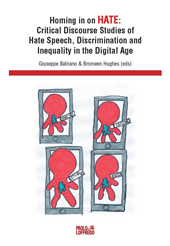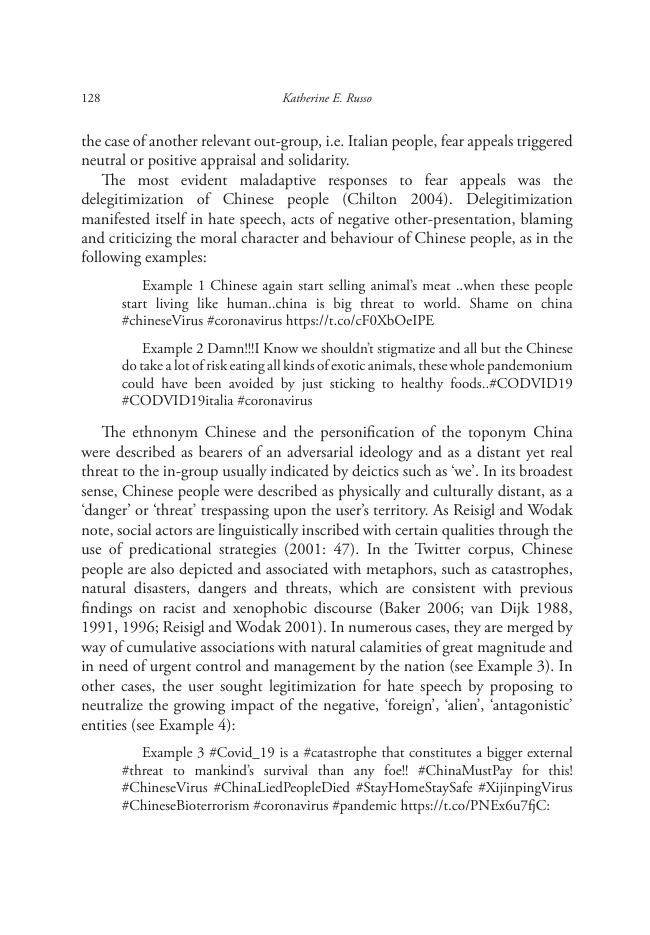2020 - Paolo Loffredo editore
E-book
Digital Version
Download | Copy/paste | NO Printing
Homing in on hate : critical discourse studies of hate speech, discrimination and inequality in the digital age
xiv, 267 p.
- A shared definition of 'hate speech online' is in a constant flux due to the supranational character of the internet, the slippery nature of online harassment, and the porous relationship between actual violence and discriminatory speech. Besides the hateful messages propagated across social networking platforms and micro-blogging sites, the recent rise of live-streamed hate has also captured public attention forcing governments and internet providers to contend with the issue of how to prevent and punish such online activities. As the contributors highlight throughout this volume, the term 'hate' itself is extremely difficult to define, stemming as it does from the extremes of socio-psychopathic impulses, an inability to regulate emotions adequately, or merely from a lack of empathy.
- In some cases, the denigrators do not even hate their victims, they are merely pliable individuals who feel the need to emulate the sentiments of a strong cohort of denigrators in order to gain 'insider' status. Such individuals, however, are no less to blame than the hate mongers themselves, since they actively contribute to an echo chamber which serves to amplify and reinforce the hatred deployed. Whether they truly detest their targets or merely emulate the apparently dominant group, the aim of haters, be they online or offline, is to relegate the victims to a generic category of 'others', and in hate speech the other is always the enemy. The differences between the 'us' belonging to the dominant grouping, and the 'them' banished to the out-group are magnified in hate speech: the insiders are safe, legitimate, normal and rational, the outsiders are dangerous, different, threatening, and antagonistic. [Publisher's text]
- Collected essays.
-
Information
ISBN: 9788832193596
DISCIPLINES



